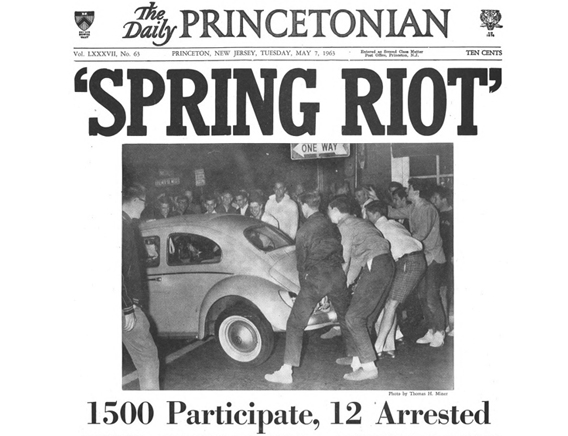In my occasional search for contemporary Chinese political studies, I stumbled upon an interesting new study. Titled “What Kind of Democracy do Chinese Want?”, it’s a study from the leading state think tank in China, the Chinese Academy of Social Sciences. Zhang Mingshu, the study’s author, apparently hopes to distinguish between different types of “democracies”. He explains thusly:
Generally speaking, one type is Western democracy. It originated from Greece … and through the catalyst of the Renaissance and Enlightenment, produced the type of democracy we see today in the United States and England. But another type is China’s democracy today, which we call “socialist democracy with Chinese characteristics.”
At this point, groans are emanating from astute China analysts about how such arguments typify Chinese political discourse today. What’s more, Zhang goes on to say that his exploration of the kind of democracy Chinese want is largely determined by the existing political and civic culture, citing the work of American political scientist Gabriel Almond on how specific civic cultures can shape the type of political system. This, of course, sounds awfully close to the longstanding debate over the lack of suzhi — loosely translated as civic values — that make Chinese society unprepared for major systemic changes.
But putting aside these issues for now, some of Zhang’s key findings nonetheless may offer some insight into the current state of political attitudes among Chinese, particularly of a younger generation of Chinese. [I can’t vouch for the soundness of the methodology, but the author claims that he conducted a survey with 1,750 random samples across four different regions in China. Each of the participants was given a 40-question survey to fill out.]
Table 1.1: Is democracy a good thing?
|
Number of respondents |
% of respondents |
| Good |
961
|
54.9
|
| Not good |
47
|
2.7
|
| Can’t generalize, has to be in context of whether it is appropriate for China’s current conditions |
703
|
40.2
|
| Other |
0
|
0
|
| Don’t know |
39
|
2.2
|
Table 1.2: Is democracy a good thing? (age breakdown)
| Age cohort |
Good |
Not good |
Can’t generalize, has to be in context of whether it is appropriate for China’s current conditions |
Don’t know |
Total respondents |
| 18-21 |
44.1%
|
3.6%
|
50.5%
|
1.8%
|
111
|
| 22-31 |
48.3%
|
2.1%
|
47%
|
2.6%
|
387
|
| 32-41 |
50.6%
|
1.9%
|
46%
|
1.5%
|
411
|
| 42-51 |
63.6%
|
2.7%
|
31%
|
2.7%
|
365
|
| 52-61 |
58.3%
|
3.1%
|
36.2%
|
2.4%
|
290
|
| 62-71 |
61.4%
|
5.5%
|
31%
|
2.1%
|
145
|
| >72 |
65.9%
|
0
|
31.7%
|
2.4%
|
41
|
| Total |
54.9%
|
2.7%
|
40.2%
|
2.2%
|
1,750
|
Table 2.1: Is China better or America better? (meaning models)
|
Number of respondents |
% |
| China is better than America |
666
|
38.1%
|
| America is better than China |
140
|
8%
|
| They have different national conditions, can’t be simply compared |
901
|
51.5%
|
| Don’t know |
43
|
2.5%
|
Table 2.2: Is China better or America better? (meaning models)
| Age cohort |
China better |
America better |
They have different national conditions, can’t be simply compared |
Don’t know |
| 18-21 |
22.5%
|
18%
|
55.9%
|
3.6%
|
| 22-31 |
25.1%
|
12.1%
|
60.7%
|
2.1%
|
| 32-41 |
35.3%
|
7.5%
|
55%
|
2.2%
|
| 42-51 |
41.4%
|
6%
|
49.6%
|
3%
|
| 52-61 |
48.3%
|
4.5%
|
43.8%
|
3.4%
|
| 62-71 |
55.9%
|
4.8%
|
39.3%
|
0%
|
| >72 |
65.9%
|
0%
|
31.7%
|
2.4%
|

